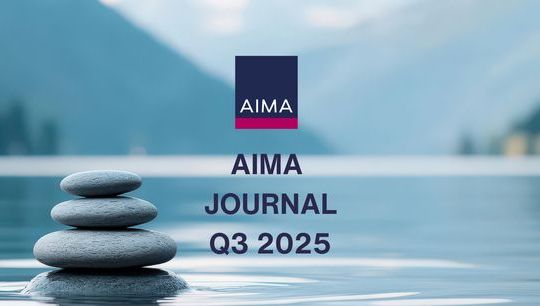Transforming investor relations from reactive to proactive: With customised due diligence
By Wissem Souissi, CEO, Diligend
Published: 21 March 2022
The cost benefit of a proactive approach for due diligence responses
Risk management is the cornerstone of due diligence. Investors perform due diligence on potential or existing funds and fund managers to minimise the potential financial risk, operational risk, and reputational risk to their business. These risks are becoming increasingly complex and difficult to manage requiring investors to seek more information at an increased rate from their asset managers.
The due diligence process is an integral part of the investment process but not necessarily one that alternative managers relish. Standardised DDQs like those published by AIMA, ILPA and the PRI have been well received and provide useful intelligence into the type of questions that investors across the industry are asking. Managers that use these standardised DDQs as a basis to formulate responses accordingly will find that they are somewhat prepared to respond to a wide variety of investor requests. However, most investors require additional information and files to supplement the standardised answers. These non-standard requests take up a large proportion of the managers’ time allocated for information requests, because they require internal experts to review the questions and provide new data points. These experts are better suited to drive the search for alpha but they are required to provide transparency for the end investor. This is the dilemma; should the managers push back on the investors and risk impacting fundraising potential or should they utilise resources to provide more clarity and transparency.
Increasing complexity in portfolios
Investors need answers because as market conditions change and new asset classes emerge, investors are increasingly broadening the scope of their portfolios. Many investors are extending beyond their core investments to include a greater exposure to alternatives. Private markets allocations continue to rise, following strong private equity and credit performance in 2021 and both hedge funds that investing in private credit and venture capital and private equity managers will see greater allocations. As more new funds pour into alternative asset classes, more questions and greater diligence will be mandated. There are signs of greater regulatory pressures already on the horizon.
ESG and diversity
Public interest in environmental, social and governance (ESG) and diversity issues has swelled in the past decade in parallel with significant principles-based regulatory changes. These combined factors mean that institutional investors almost without exception, recognise the necessity of sustainable and ESG related investing. The challenges lie in collecting, analysing, and presenting real time and forward-looking data, in a manageable way.
Digital assets
While institutional investment into digital assets is still relatively low level, the tide may be turning, and some early successes have been reported across the media. Crypto assets are being introduced slowly to diversify portfolios or increase returns, but the risk remains high and the approach to due diligence is different. The SBAI has produced a useful toolbox to help investors and managers satisfy the specific requirements of crypto asset due diligence, but as the space develops, a non-standardised approach will almost certainly be required.
Customised due diligence responses
Whilst this diversification is great news for alternative managers, how can they turn it to their advantage? One way of standing out is to provide customised due diligence response data that meets the specific needs of every investor or investor type. By understanding and pre-empting investors’ due diligence needs managers can demonstrate a deep knowledge of their products, and associated risks. They can provide greater transparency to investors and cut through the noise. All while reducing the ad-hoc demand on the firm’s internal experts.
Digitisation and automation
However, providing customised responses to every request is time consuming and complex without the digital tools to support it. Managers with no tools, that typically prepare standardised responses will find a big leap in resources and time required to create custom responses. However, those managers that can do this effectively will be able to respond faster, improving their visibility amongst the investor community.
Investors will appreciate the tailored information and reduced burden on portfolio management teams when sifting through manager responses.
Automation is the underlying technology that allows managers to provide customised responses quickly and efficiently. Tools that can recognise similar questions and suggest responses using a bank of previously submitted response data can speed up the process and reduce manual intervention.
Fee pressures
Reducing manual intervention with automation tools can only have a positive impact on managers’ costs, where portfolio management and investor relations expertise come with a significant price tag.
Managers’ fee structures are being scrutinised and squeezed by investors, leading them to examine current operating models for further efficiencies. Those that continue to charge higher fees will be expected to provide greater service levels, transparency, and insights. Standardised due diligence questionnaire responses and self-serve data rooms will not suffice. Additional investor relations resources may be needed, and managers will need to balance whether they should invest in automation or in headcount.
Those that reduce fees to compete will need to drive efficiencies in the operating model to maintain profitability. Toolsets that allow managers to do more with less resources, will be essential where margins are paper thin.
Hybrid working
Additionally, as we move out of the pandemic and towards a new hybrid working model, it becomes important for managers to implement digital toolsets that allow them to collaborate and communicate effectively at a distance. For portfolio management and investor relations teams, this means establishing data stores that are secure, yet easily accessible, that utilise qualitative and unstructured data sources, but provide a reliable single source of truth. Not only would this enable greater efficiency for the investor relations teams but more importantly reduce the risk of providing incorrect or stale data to the investor.
The final word
In responding to increasingly frequent investor demands for greater transparency and ever more complex and custom data points as part of due diligence and monitoring exercises, managers will need to adapt their approach to respond quickly and retain a competitive edge. In fact, regulatory changes and pressures to disclose more information than ever to investors may also force managers’ hands, making new disclosure or response tools a necessity rather than a choice.
Digitising the due diligence response process: a checklist
- Compile a list of investor requests for information, by whom and in what format
- Identify the questions and answers sought
- Calculate time spent on different tasks; questionnaire ingestion, investor communication, sourcing data, compiling responses, comparing data from different sources
- Detail the resources that would typically be required to fulfil a due diligence request
- Identify data sources: notes, emails and files
- Gather previous responses
- Understand the data requirements across each asset class
- Identify a shortlist of platforms that can process the right data formats
- Undertake proof of concept testing to visualise the potential time savings and customisation options





